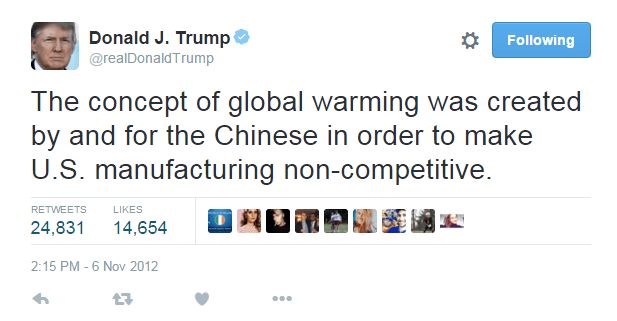The First Presidential Debate

There was a lot to anticipate when it came time to observe the first highly awaited Presidential Debate, making it impossible to play the Switzerland card. That being said, it was manageable to keep an open mind and take fairly fair notes on what each candidate had to say.
Ladies and gentlemen, this is the result of five pages of note-taking on a subpar Samsung tablet while making frequent pauses to get the notes written down correctly. It may be biased, but take it with a grain of salt.
Sept. 26 marked the first of three Presidential Debates between frontrunners Hillary Clinton (D) and Donald Trump (R). This premiere debate was located at Hofstra University in New York, and needless to say, it was a debate session of extreme opposites.
The first and only (un)popular vice presidential debate took place on the 4th of October at Longwood University in Virginia.
It was quite surprising to have observed that Trump referenced Hillary by her title of Secretary, while Mrs. Clinton held back from demanding that moderator and NBC news anchor Lester Holt silence Trump’s frequent interruptions.
That being said, the debate was something of fascination: Donald J. Trump notoriously represents a new type of Republican, while Hillary brings to the table her 30-plus years of political experience with views that have been fairly consistent throughout. Hillary brought to this first debate the Democratic sense of optimism, while Trump attempted to be a realist based on the Trumpian equivalent of fact-stating.
(An in-depth can be observed at NPR.org under the title, “Fact Check: Trump And Clinton Debate For The First Time.”)
Holt was assigned to ask the tougher questions. This first debate was divided the debates into approximately three sections: jobs, America’s direction (referring to the issues of race, terrorism, and foreign affairs affecting this country), and nuclear power. And aside from the snippets of dramatic moments in this debate ─ that is, the bits which the media loves to take and warp for the sake of TV ratings and newspaper sales ─ there was a lot that was talked about.
In case you missed it (or you’re too lazy to read the rest of the article, which I don’t blame you), Hillary was unanimously declared the winner from scientific poles. But we’ll get to that after we’ve discussed both candidates stances on the issues.

Jobs
The views of each candidate were predictably representative of their respective parties. Hillary favored the small business and the economy of the middle class, while the Donald emphasized the need to protect big businesses from losing their jobs to China and Mexico.
HILLARY CLINTON
Secretary Clinton optimistically brought up the structure of a proper middle class economy: investing in small businesses, and affordable college education in order to kickstart those businesses. She also emphasized the aspect of family: having a system set up where maternity leave was available to take and affordable childcare was an option for all incomes.
She had the expected Democratic view of “making the wealthy pay their fair share” that was Bernie Sanders’ go-to anthem. Another Sanders theme she reiterated was free college education, and reduced loans for current students.
Clinton was also passionate about adding that “trickled-down economics” would turn into “Trumped-up, trickled-down economics” under his namesake’s presidency, making her favor increased taxes for the ultrarich.
TRUMP
Donald Trump, coming from a background of wealth, self-acclaimed “success,” and a small loan of a million dollars, naturally favored “Big Business” during the debate. Once he was allowed to start his two minutes, he immediately started addressing the fact that Detroit and Ohio were losing jobs to Mexico and China.
He was steadfast with his Big Business rhetoric, and emphasized that Hillary’s plan of raising taxes for the wealthy and increasing restrictions on their businesses would simply lead to even more jobs lost. Hillary’s suggested tax increase would cause jobs to move from Detroit and Ohio to China and Mexico, he insisted, and argued if these taxes weren’t implemented, Trump argued that this would allow businesses and the wealthy the ability to expand their empires.
Going Green. The topic of clean energy was naturally brought up into the debate, and it was first prompted by secretary Hillary Clinton. Clinton, among many things. proposed an investment in solar panels because of her stance on climate change. Trump stated the use of solar panels was a failed project with money lost. Despite this, he claimed to be a believer in “all forms of energy.” However, he denied ever blaming China for the climate change epidemic, regardless of his infamous Nov. 6, 2012 Tweet.

America’s Direction (Race, ISIS, foreign affairs, etc.)
HILLARY CLINTON
“Race remains a significant challenge in our country,” Mrs. Clinton said in her opening remarks. “Unfortunately, race still determines too much, often determines where people live, determines what kind of education in their public schools they can get, and, yes, it determines, how they are treated in the criminal justice system.”
Hillary then called for a restoration of trust between the communities and police by using the best techniques like force only when necessary. She also added that the criminal justice system needed to be reformed, and said that good police officers are also wanting this reformation.
She added that citizens safety needs to be prioritized. Gun ownership rights should be taken away from the possession of the “bad guys,” and added that it’s a major contributor to the problems we are seeing today.
In addition to safety, she considered Trump’s request to bring back “stop-and-frisk” to be inefficient. We need common sense gun laws, and believes that there are simply too many military-style weapons available to the public. These laws would include banning gun ownership for people on the No-Fly List.
Clinton also sympathized for the police and stated that implicit bias is a thing for everyone. More needed to be done in funding for the ending of bias in police officers. She called for getting officers trained with the issues of mental health problems, in order to deal with cases involving disabled citizens without taking away their rights.
Cyber security was also brought up by the secretary as the next big issue. Her goal is to defend the citizens of the United States, and find ways to tackle ISIS’s powerful online presence. Quoting NATO article five, she said that “An attack on One is an attack on All.”
TRUMP
Donald began this portion of his turn of the debate accusing Clinton of not wanting to use “law and order,” a term he says is necessary to have a country. He rebutted against Clinton’s claims of the crime decrease, pointing out that African Americans and minorities have thousands of shootings and murders. Using Chicago as his example (President Barack Obama was the senator of Illinois before serving as our 44th president), he claimed over 4,000 people have been killed since the start of Obama’s presidency.
He was popular with his in-depth discussion of stop-and-frisk, which Lester Holt quickly pointed out was unconstitutional due to racial profiling. Trump disagreed, saying it was needed for better communications, better relations between cops and citizens, and saying that Dallas, Texas had this before someone shot five cops at a peaceful protest. He also added that this technique had been extremely impactful during mayor Michael Bloomberg’s time in office.
The businessman also added that the African-American community had been let down by the government and by democrats. Trump aso added that we lost control over things under Obama.
He does believe in the no fly list, no gun ownership rule that Hillary believes in, and vowed to take away guns from gangs.
Trump also insisted on stronger cyber warfare tactics, and added that we were doing a horrible job of handling this issue. ISIS, he added, has a strong online presence in order to radicalize people. Clinton talks about merely taking ISIS down, but he promised that he would defeat them.
The businessman was also adamant about not supporting the Iraqi war, citing that it would, and did, destabilize the mideast. Trump insisted that people talk to Sean Hannity to affirm his statement.
Nuclear Weapons and Nuclear Temperament
HILLARY CLINTON
Secretary Clinton was adamant about America’s word needing to be good, and asked for people to look at the entire situation: we have problems with Iran, we need to deal with our action of “putting a lid on their nuclear plans,” and we need to be weary of the fact that Donald doesn’t have a plan.
She reminded viewers that people around the world follow these debates and our election season so closely. (If you want any proof of this, I’d gladly refer you to my friend based in India who greatly supported Bernie Sanders earlier this year.)
TRUMP
Trump continued to stress that Russia is expanding its technology, allowing them to come up with new capabilities which is requiring us to update our technology and weapons. Although he would like to get rid of nuclear weapons, it would be a foolish move when considering that other countries still have these weapons at their disposal.
“One of the greatest giveaways of all time,” said Trump. “Including $400 million in cash nobody’s ever seen before that turned out to be…$1.7 billion in cash. This was one of the worst deals ever made by any country in history.”
Trump also added that he met with Bibi Netanyahu, the Prime Minister of Israel, and described him as not being a “happy camper.”
On stamina and temperament. Continuing with his attempts to undermine Secretary Clinton, Donald Trump insisted in his repetitive vernacular that “She (Clinton) doesn’t have the look. She doesn’t have the stamina. I said she doesn’t have the stamina. And I don’t believe she does have the stamina. To be president of the country, you need tremendous stamina.”
Again, Clinton was quick to point out the flaw in Trump’s statement: “Well, as soon as he travels to 112 countries and negotiates a peace deal, a cease-fire, a release of dissidents, and opening of new opportunities and nations around the world or even spends 11 hours testifying in front of a congressional committee, he can talk to me about stamina!”
The Wrap-Up
Lester’s final question to Trump and Hillary was whether or not they’d accept the final outcome of this election.
“I support our democracy. And sometimes you win and sometimes you lose, but I certainly will support the outcome of this election. And I know Donald is trying very hard to plant doubts about it but I hope the people out there understand this election’s really up to you. It’s not about us so much is it about you and your families and the kind of country and future you want. So I sure hope you will get out and vote as though your future depended on it because I think it does,” Hillary said.
Trump reply was similar, insinuating that Hillary’s incapable of being President. “I want to make America great again. I’m going to be able to do it. I don’t believe Hillary will. The answer is if she wins, I will absolutely support her.”
Holt then informed viewers that the next presidential debate would take place Oct. 9, at Washington University in St. Louis.
Editorial by Morgan Connelly
Sidenote: the author is officially done with this twisted election season and is already not planning on covering the second debate unless some muggle actually writes in and actually liked this article. Like, wow, someone actually reads my shit besides my mom’s family and Facebook friends and Eric Slyter? (I’m joking with the Eric part, he’s the best.) Go you guys, the people who make my job worthwhile!
Another Sidenote: Man Repeller has done a fantastic job of covering the second debate on their website, “manrepeller.com” Search for article “31 Deep Thoughts about the Second Presidential Debate”

















